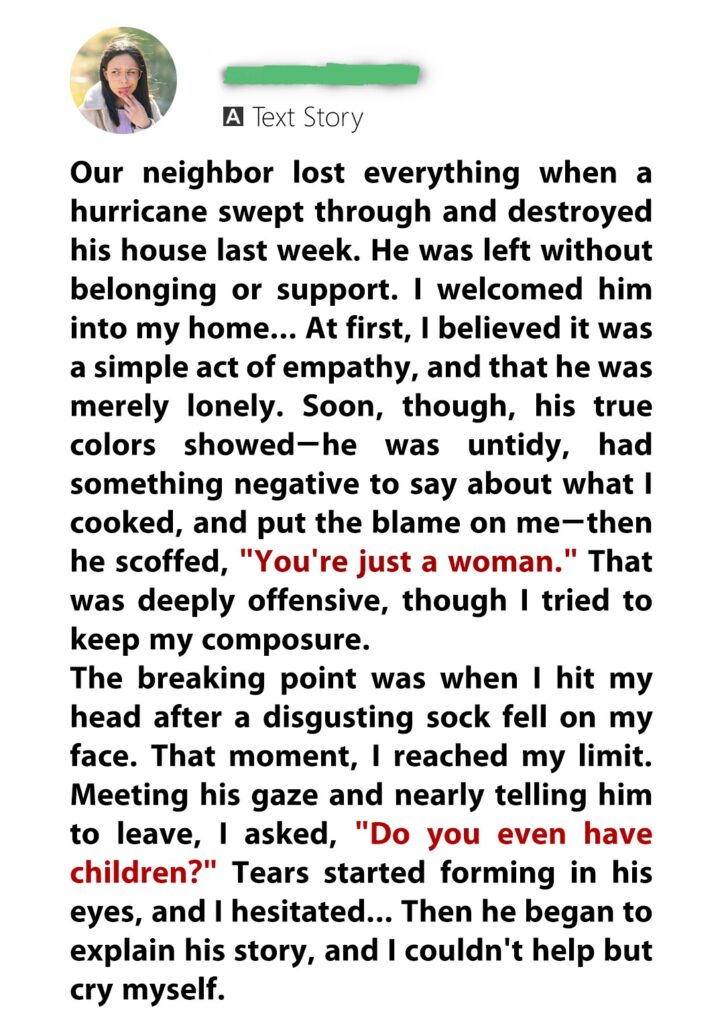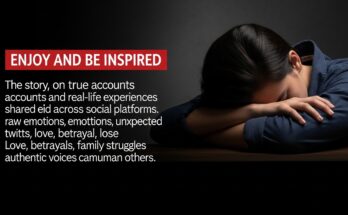When the storm tore through our neighborhood, it left behind broken fences, shattered windows, and one displaced man—my neighbor, Mr. Langley. He was quiet, always kept to himself, and rarely exchanged more than a nod. But when I saw his roof caved in and his porch flooded, I offered him a place to stay. It felt like the right thing to do.
At first, he was polite, almost overly so. He kept to the guest room, cleaned up after himself, and barely spoke. But the silence wasn’t peaceful—it was heavy. I started noticing things: he never made phone calls, never received visitors, and avoided eye contact like it cost him something. One night, over dinner, I asked about his family. He paused, then said, “They don’t talk to me anymore. I guess I earned that.”
The next few days revealed more. He flinched at loud noises, apologized excessively, and once broke down when I accidentally knocked over a photo frame. It was a picture of a young boy—his son, I later learned. Mr. Langley had been estranged from his family for years. Not because of abuse or violence, but because of pride, stubbornness, and a refusal to admit when he was wrong. He had pushed everyone away, convinced he was protecting them from his own bitterness.
Living with him was like sharing space with a ghost—someone who existed but didn’t quite live. And yet, beneath the layers of regret and isolation, there was a man desperate for redemption. One morning, he asked if I thought people could change. I said yes, but only if they wanted it more than they feared it.
That afternoon, he made a call. It was to his son. I didn’t hear the words, but I saw the tears. And I saw something else: hope.
Mr. Langley stayed with me for three weeks. His house was repaired, but more importantly, something inside him began to mend. When he left, he shook my hand and said, “Thank you for seeing me. Not just housing me—but seeing me.”
I realized then that storms don’t just destroy homes—they expose truths. And sometimes, the most broken people aren’t the ones with shattered roofs, but the ones who’ve lived too long behind emotional walls.



